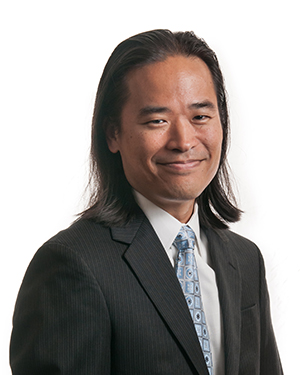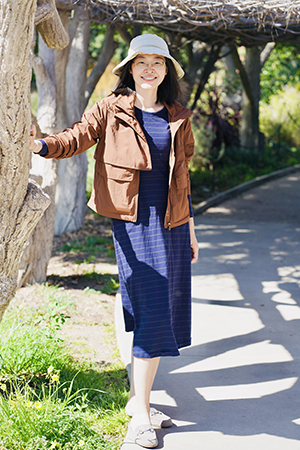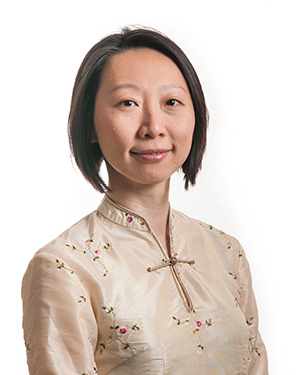By Kai Curry
NORTHWEST ASIAN WEEKLY
First, a disclaimer. There is no proven way to completely avoid COVID-19 or get better from COVID-19 once you get it. However, there might be ways to stay healthy in general—thus reducing one’s chance of contracting any ailment. And there might be ways to recover faster if you do get sick. The Weekly spoke to three doctors from the local repository of natural and alternative medicine, Bastyr University, about tips for wellness, especially those based on Asian practices.
Bastyr is an alternative medicine school with branches in Kenmore, Washington and San Diego, California. Their gardens grow medicinal plants in the hundreds. They also conduct research and run a clinic, which in our case is located in Fremont.
Dr. Angela Tseng is an acupuncturist, Chinese herbal medicine practitioner, and instructor at Bastyr. After she graduated from college, she spent a year working as a research assistant in Taiwan. There, she saw the power of acupuncture, which led her to her current profession.
“We live in a busy world,” Tseng said. “Our body sends us signs and signals which can be overlooked. Thus, my first recommendation to stay healthy is to observe our body and mind. By recognizing the different messages that our body tells us, we can modify our behaviors or seek help.”
While Tseng stated that “there is no known way to prevent COVID-19 infection through acupuncture or traditional Chinese medicine,” she allowed that Chinese medicine can be used to tackle the weakened or “imbalanced” immune system that COVID-19 causes. “During the pandemic, traditional Chinese herbal medicine and acupuncture [have been used] in treating the symptoms of COVID-19. Retrospective and clinical studies have shown symptom relief.”

Dr. Greg Yasuda, naturopathic doctor and associate professor in the Department of Physical Medicine at Bastyr University.
All three doctors we spoke to agreed that your best bet for fending off COVID-19 is exactly what we’ve been told all along: vaccination, masking indoors, and washing hands. Dr. Greg Yasuda is a naturopathic doctor and associate professor in the Department of Physical Medicine at Bastyr. As a third-generation Japanese American, he believes that “my heritage has played a formative role in my life and my work.” Yasuda is certain that his Asian upbringing impacted him deeply in terms of wellness. “My maternal grandparents were farmers and, growing up on the farm, my mother was instilled with many of those values that were eventually passed on to me. Physical movement, growing food, gardening, and a whole foods diet are all healthy habits I can trace back…This extended to use of botanical medicines as well,” such as use of aloe vera.
In terms of physical medicine, there is “not a known way…to decrease your chance of contracting COVID-19.” However, there are ways to stay healthy, or healthier.
“Each of us can do things that either work against, are neutral to, or strengthen for, any system in our body, including our immune system,” Yasuda explained. “There is no one identified single action to prevent a COVID-19 infection, but [there] are actions that help strengthen your immune system to generally help prevent infections and illness.” Yasuda likes to see “patients active and moving every day, according to ability and energy level, and vigorous movement at least a few times each week.” Life is motion, he said. By helping someone stay in motion, “we unencumber each patient’s innate potential to heal themselves in a way that no doctor can do for them.”

Dr. Shanshan Chen, associate professor for the Bastyr University Department of Nutrition and Exercise Science and teacher in the School of Natural Health Arts and Sciences.
Dr. Shanshan Chen, associate professor for Bastyr University Department of Nutrition and Exercise Science and teacher in the School of Natural Health Arts and Sciences, believes in “the healing power of nature and whole-food nutrition.” She came from China 15 years ago to study nutrition at University of Massachusetts Amherst. “I have always been drawn to the field of holistic nutrition because Chinese culture highly prioritizes living in harmony with nature and the environment, and such a mindset has been with me since childhood,” she said. “For example, I was always told by my parents to eat seasonally, and the best beverage is pure water, etc.”
Chen practices and teaches what she calls “eating a rainbow.” In her own family’s diet, she makes sure to include land and aquatic plants (i.e. lotus roots), a plant-sourced protein (i.e. tofu); and her “secret salad dressing recipe” which utilizes “raw freshly-minced garlic, for not only a little bit pungent flavor, but also its antimicrobial function!” When it comes to COVID-19, Chen reminds us that it’s not just the coronavirus but all airborne infections diseases that we can defend against with good hygiene, masking in public or inside, and getting vaccinated. In addition, “good nutrition is proven to strengthen our immune system.” She recommended plenty of fresh produce daily “to get a natural booster of antioxidants and phytochemicals,” sufficient protein, “with a focus on plant sources like beans and legumes, nuts, and seeds, etc.,” using other herbs and spices besides salt and sugar, and staying hydrated.
Chen had some good tips for alleviating COVID-19 symptoms should you have it. Of course, she insists that you tell a doctor at once if you suspect you have COVID-19. If your symptoms are mild enough that you can stay at home, then “you can use nutrition to support your body’s recovery process.” Increase your hydration with flavored water and “homemade tonics such as honey lemon tea and honey ginger soup.” Eat smaller meals to ease your stomach’s digestion, and choose options such as chicken noodle soup or mixed bean congee. Finally, “avoid pro-inflammatory foods that are usually highly processed with lots of sugar, salt, and oil, and those cooked using deep frying.”
Tseng tended to agree with Chen’s recommendations and added that, while you should not seek acupuncture while you have COVID-19—you should stay home!—“Once you have finished your quarantine period and you test negative for COVID-19, there are things you can do to support your body’s recovery back to full health. Many people still feel tired weeks after a COVID-19 infection has passed. Get extra sleep at night or allow yourself a nap during the day. To support your immune system, you may want to schedule an appointment with your acupuncturist or herbalist to regain the healthy balance of the body or the lingering symptoms.”
When talking with many Asian Americans, and Asian American medical professionals, we discover that habits rooted in Asian tradition are good for us year-round and in case of emergency. Many locals of Asian heritage already practice many recommended dietary, medicinal, and physical methods as parts of their daily routines. “For over 2,000 years, food has been a central part of Chinese culture and traditional Chinese medicine,” Chen said. “Our ancestors not only practiced holistic nutrition in their daily lives, but also found their connections with nature through local and seasonal foods.” While China has perhaps the most famous non-Western medicinal tradition, most Asian countries have versions of this natural path to wellness.
“Obviously, we have a long way to go as both a profession and a country, but raising awareness on any level will help this along,” said Yasuda, who admitted that, at the start of his career, he wanted to be a hero, but he realized that, “we each must be our own heroes…I am not, and ought not be, the hero of anyone else’s healing journey—they are.”
Kai can be reached at info@nwasianweekly.com.




